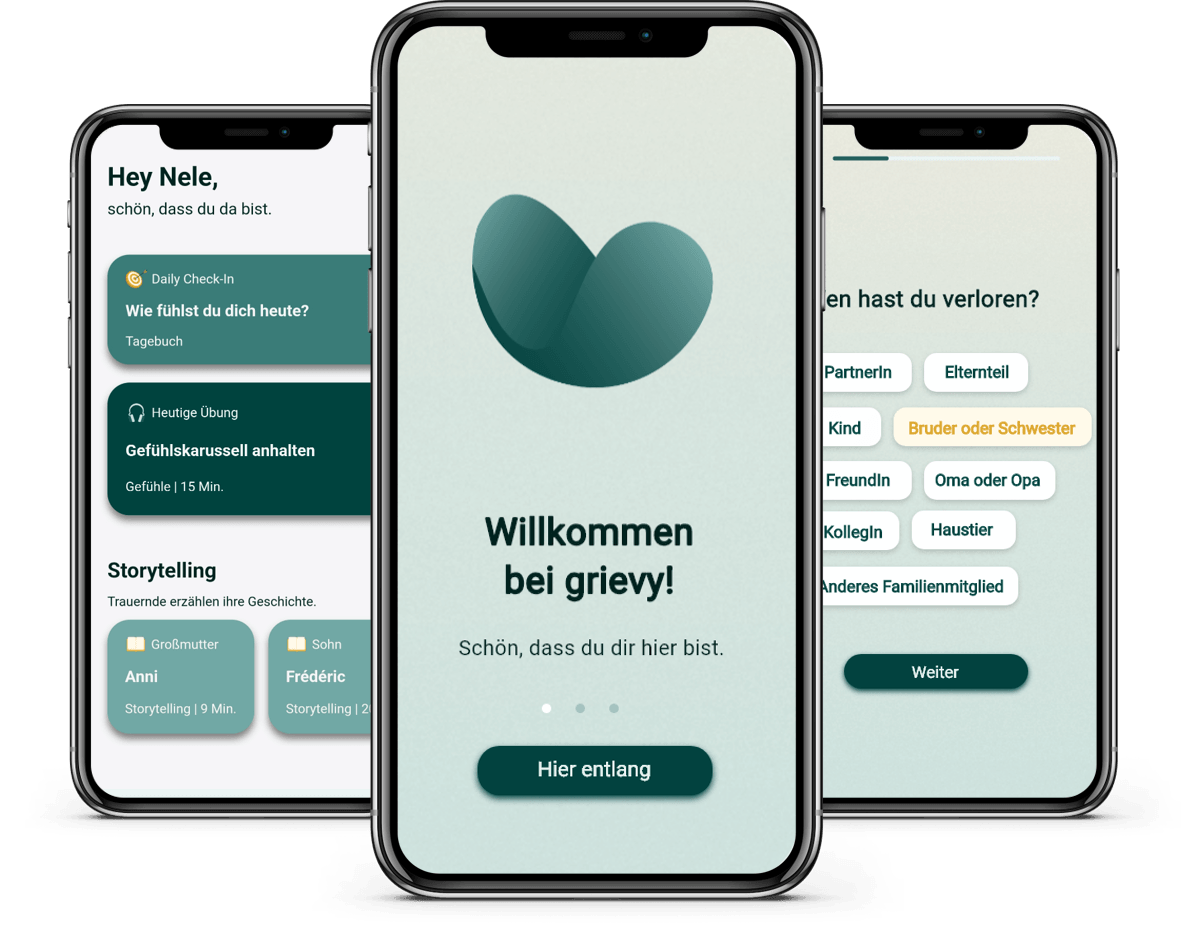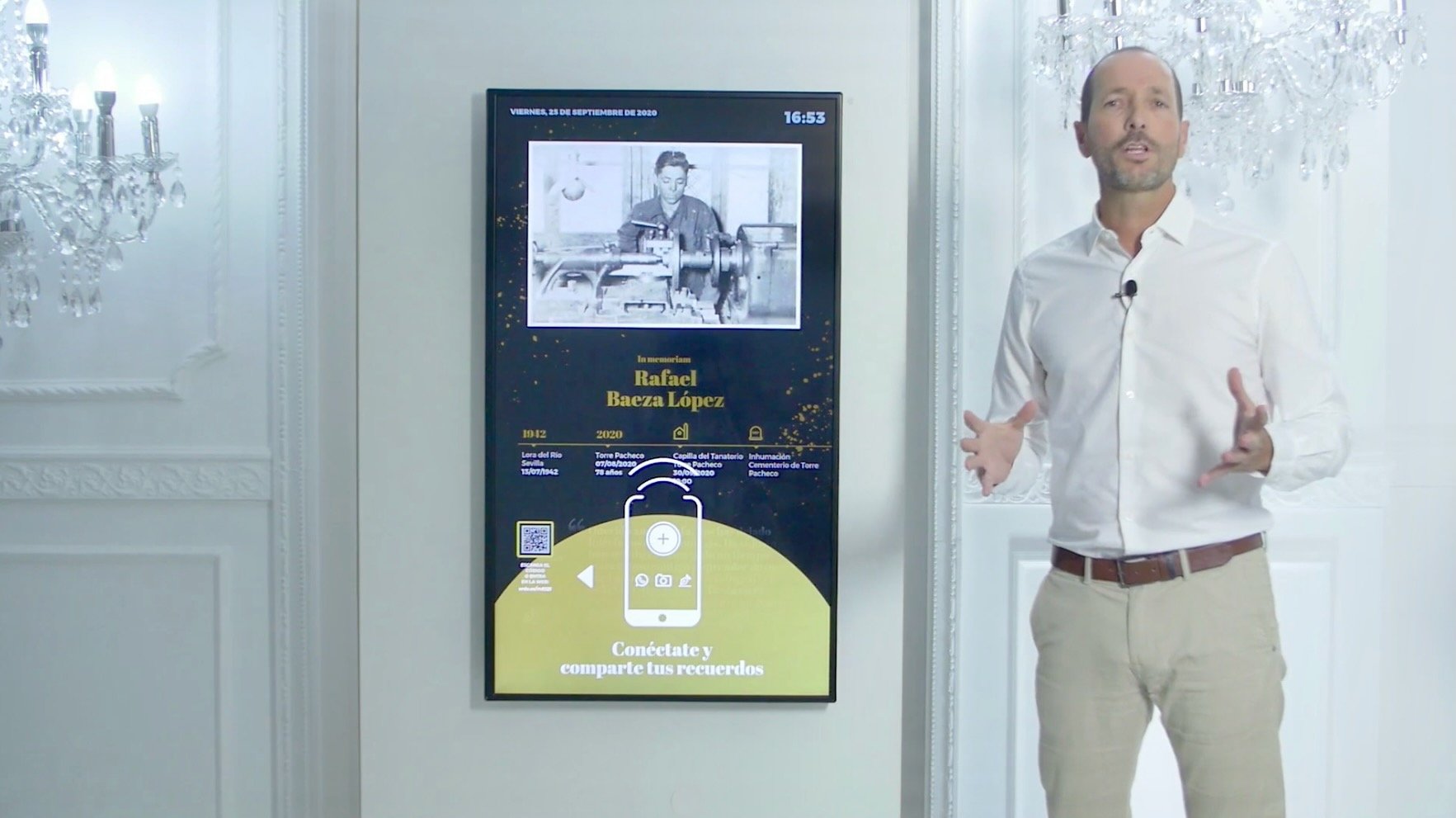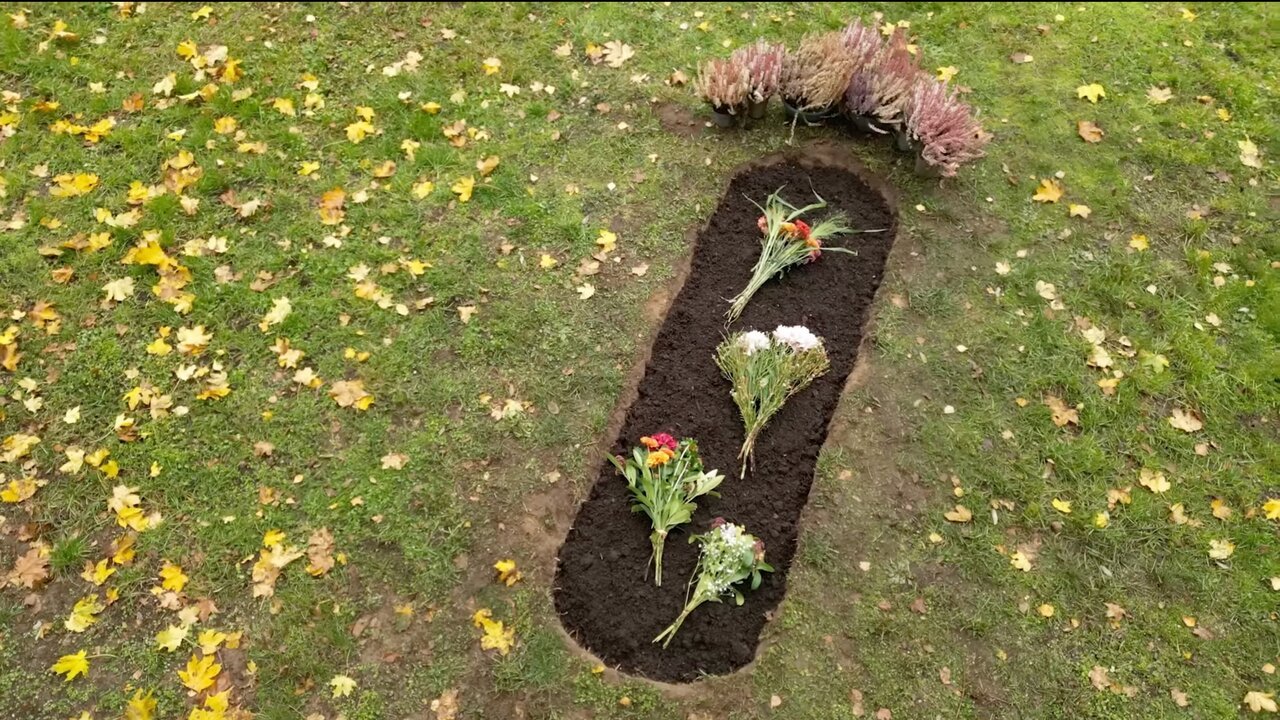Death is inevitable but comes with many tasks and responsibilities at a time when we are clouded by grief.
Whether experiencing cyber grief after the unexpected death of an online friend, trying to plan a funeral with an ecological bent, or wanting to have a say in how we are remembered, startups are constantly innovating what happens after we die — and before you read, check out part one of this article.
Exizent (Scotland)
Founded in 2018 in Glasgow, Exizent is an industry platform for professionals involved with managing the bereavement process.
When someone passes away, Exizent connects the data and services used by legal services firms, institutions and executors to sort out what's required to make the journey for the bereaved an easier one.
This reduces uncertainty, increases speed, and makes the process more straightforward, reducing the burden on those grieving.
Exizent raised $4.1 million in funding in 2020.
HEREweHOLO (Netherlands)

Want to attend your own funeral? Of course you do!
Founded in 2020, HEREweHOLO offers the ultimate form of mixed reality — life-sized holograms that communicate recorded and live messages.
The holograms have loads of applications in entertainment and product presentation and can be used — pre-recorded of course — for you to give a speech at your very own funeral.
Meine Erde (Germany)
Meine Erde (My Earth in English) provides funeral services that return your body to nature.
Natural microorganisms transform the human body – with the help of plant materials – into fertile soil.
As the company describes:
"We bed the deceased on hay, green cuts and flowers. Natural microorganisms transform it into valuable mother earth in 40 days."
The process uses no chemicals or pollutants, unlike cremation, which according to Meine Erde, results in ash that contains heavy metals.
The company also offers funeral insurance and covers funeral costs in the event of sudden death, enabling customers to plan for their last rites in a sustainable manner.
Founded in 2021, Meine Erde has raised an undisclosed amount in seed funding.
Its investors include Project A Ventures, BLN Capital, soccer world champion Mario Götze and numerous business angels - including Tim Schumacher, Christian Vollmann, Lukas Brosseder, Johannes Kreibohm, Johannes Schaback and Just Beyer.
Bank of Memories (Ukraine/US)
Co-founded in 2019 in Kyiv, Ukraine, Bank of Memories is digitising family heritage and putting it on the blockchain. Its developed a hybrid storage platform that uses blockchain technology to capture and safeguard cherished moments as NFTs (non-fungible tokens).
This offers a cheaper option to cloud storage and allows users to retain full ownership of their data and have complete control over who has access to it.
Through family fund staking, your family can grow, invest, and earn rewards.
Further, a personal assistant will be there to represent you, ensuring your story lives on. There's also the option to create "messages to the future," allowing users (presumably the deceased before their demise) to send messages that will be delivered to their loved ones on a specific future date.
Grievy (Germany)

Grief after a death is the most commonly reported traumatic event and significantly increases the risk of mental illness across the lifespan.
However, support services such as discussion groups or counselling have long waiting times or high costs and are aimed primarly at older target groups.
In response, Grievy has developed an app that helps those experiencing grief learn healthy coping strategies through personalised self-therapy plans with immediate access to mental health experts.
Kindly Earth (UK)
Founded in 2020, Kindly Earth is one of the UK's leaders in a green alternative to cremations and burials, Resomation.
It aims to create a less technical and more supportive dialogue and brand to help members of the public understand the use of Resomation.
Resomation, also known as Alkaline Hydrolysis or Water Cremation, speeds up the natural process associated with burial. The deceased is enclosed in a biodegradable pouch and placed in a container filled with pressurised water and a small amount of potassium hydroxide.
Each cycle takes approximately four hours.
At the end of the cycle, the soft bones left are dried, then reduced to a white powder, similar to ash. The remains are then returned to relatives in a sustainable urn.
The UK's leading funeral provider, Co-op Funeralcare, is set to pioneer the introduction of ResomationResomation in the UK later this year. It will mark a major shift in UK funerals for more than 120 years, as the first alternative to burial or cremation since the introduction of the Cremation Act of 1902.
Vivo Recuerdo (Spain)

Founded in 2018, Vivo Recuerdo has developed the Window of Memories ®, professional screens installed at the entrance to the wake rooms through which the family and friends of the deceased can share their images, drawings, messages of affection and condolences.
Mourners can contribute to the platform in person using a QR code or an app, which the company made free during the pandemic.
It has also released digital book compilations of shared memories and live broadcasts of farewell ceremonies and services at funeral homes in Spain, Andorra, Portugal, Mexico, Ecuador, Paraguay and the Dominican Republic.
And vinyly (UK)

If you're looking for an alternative to scattering ashes in a forest or river, this one's for you — turn those ashes into custom records.
While this one's more small business than a startup, I think it's cool and thus worth a quick mention.
And Vinyly records are real vinyl records made using real, traditional vinyl production techniques with additional specialist in-line processes (not engraved PVC blanks). Each record contains about a teaspoon of ashes. You can even design your own artwork.
As the company suggests:
"Record a personal message, your last will, your own soundtrack or just the sound of silence to hear your pops and crackles for the minimal approach."
Lead image: Meine Erde.



Would you like to write the first comment?
Login to post comments